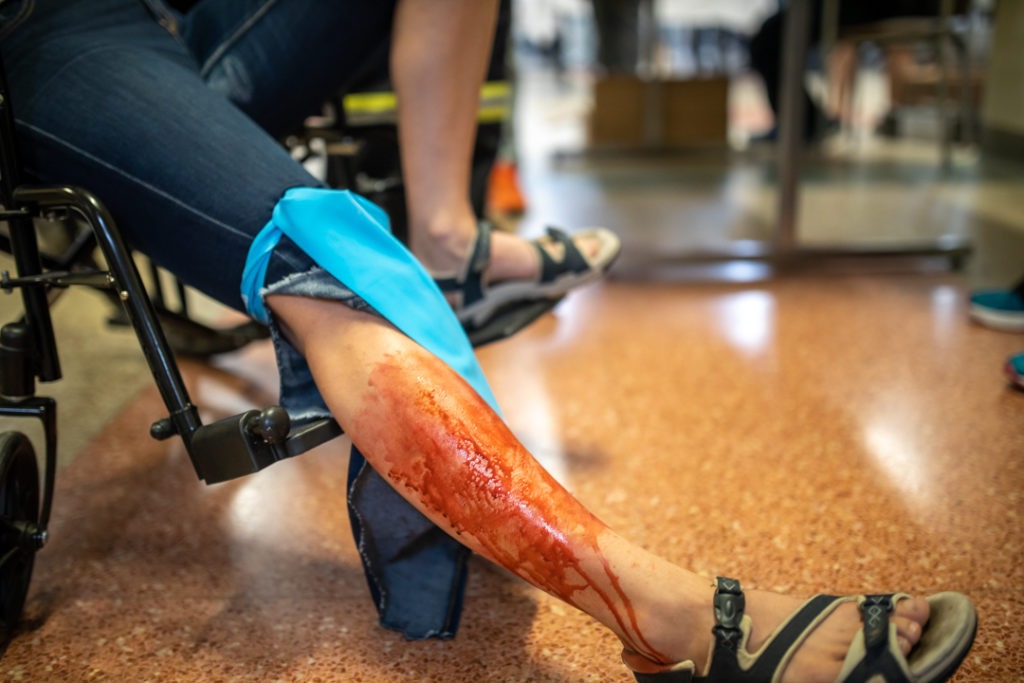
Disaster in Hamilton: What if?
The tricky thing about a disaster is that it usually comes without warning. Natural events, acts of terrorism, or large-scale accidents can create chaos and cause harm beyond what emergency responders encounter day-to-day. So, how do they prepare for the worst? They practice.
Last week, Hamilton Health Sciences (HHS) emergency and trauma doctors and medical residents teamed up for a bi-annual disaster simulation to fine tune their emergency response skills. They were joined by nearly 150 participants, including nurses, administrative staff, allied health professionals, Hamilton paramedics, and dozens of volunteer actors playing the role of “patients”.
The scenario? A large explosion at Tim Horton’s Field during a football game, causing widespread injury and sending many to HHS’ Hamilton General Hospital (HGH) site, the region’s trauma centre.
Making it feel real
The auditorium at HGH was set up to mimic an emergency department, complete with gurneys and carts stocked with medical supplies. Patients were given moulage, make-up made to look like wounds or other injuries. As the victims started to flood in to the makeshift emergency department, response teams worked together to triage them based on the severity of their injuries while closely monitoring the availability of supplies and doing lots of on-the-spot troubleshooting. Everything was designed to simulate a real-life incident, where anything can happen and time is of the essence.
“We’re seeing more of these events happening around the world and in our own communities,” says Dr. Mulla. “So, it’s important that we’re prepared in the event that disaster strikes.”
“Simulation provides the opportunity to practice good collaboration when the stress isn’t so high,” says Dr. Ali Mulla, emergency medicine resident and co-lead of the disaster simulation event. “Everyone involved is able to experience the same incident with time to debrief and discuss together afterward.”
Anything can happen
“We’re seeing more of these events happening around the world and in our own communities,” says Dr. Mulla. “So, it’s important that we’re prepared in the event that disaster strikes.”
The disaster simulation event happens every two years to help keep the learnings fresh in everyone’s minds, and to give residents at all stages the chance to participate.
“Participants take away a sense of how to manage in the controlled chaos of a mass casualty situation and how to work cooperatively to make sure that everyone who comes in gets the care that they need,” sayd Dr. Alim Pardhan, site lead in the HGH emergency department. “This prepares our residents and other participants to manage these situations if and when they happen.”
Scroll down to catch a glimpse of the day.
